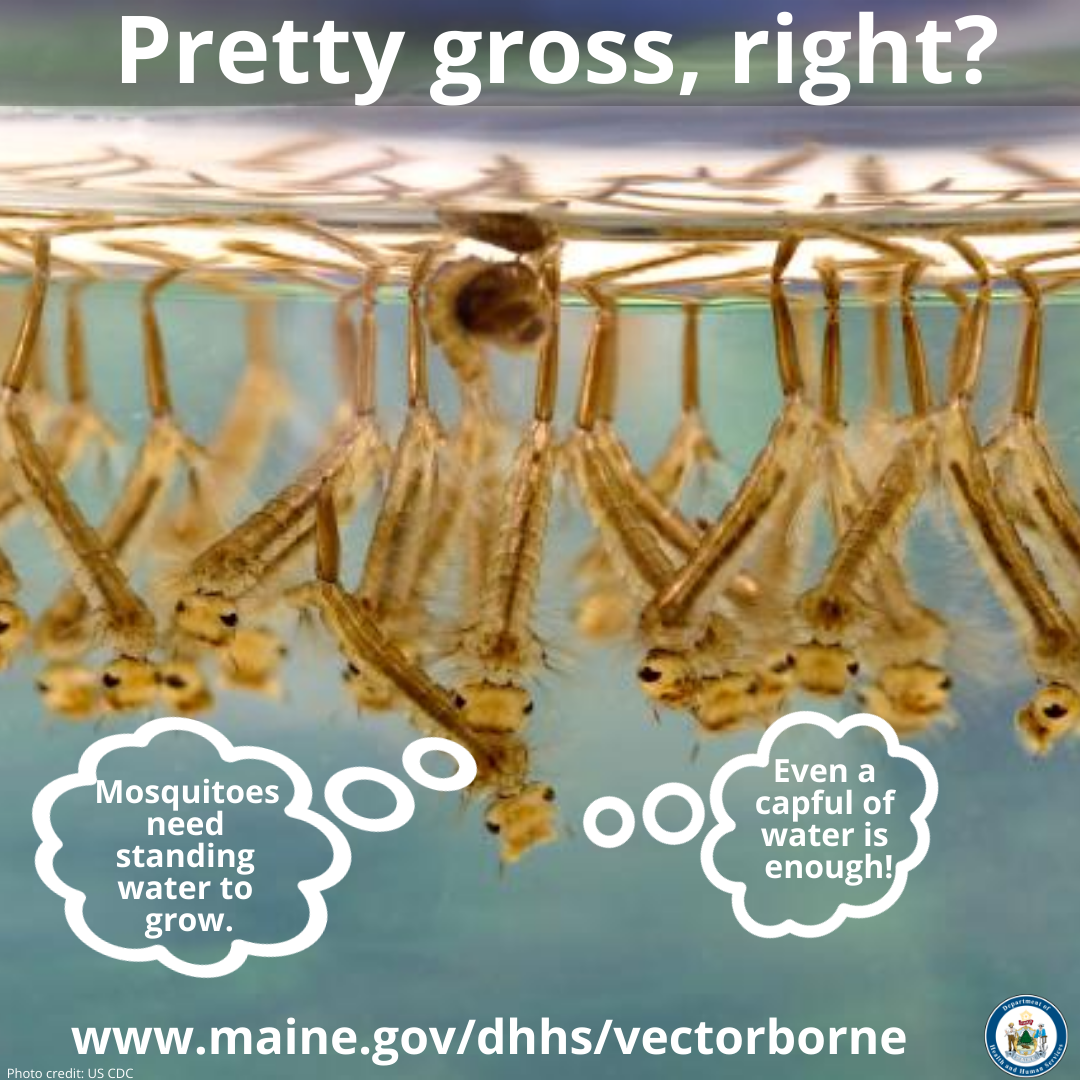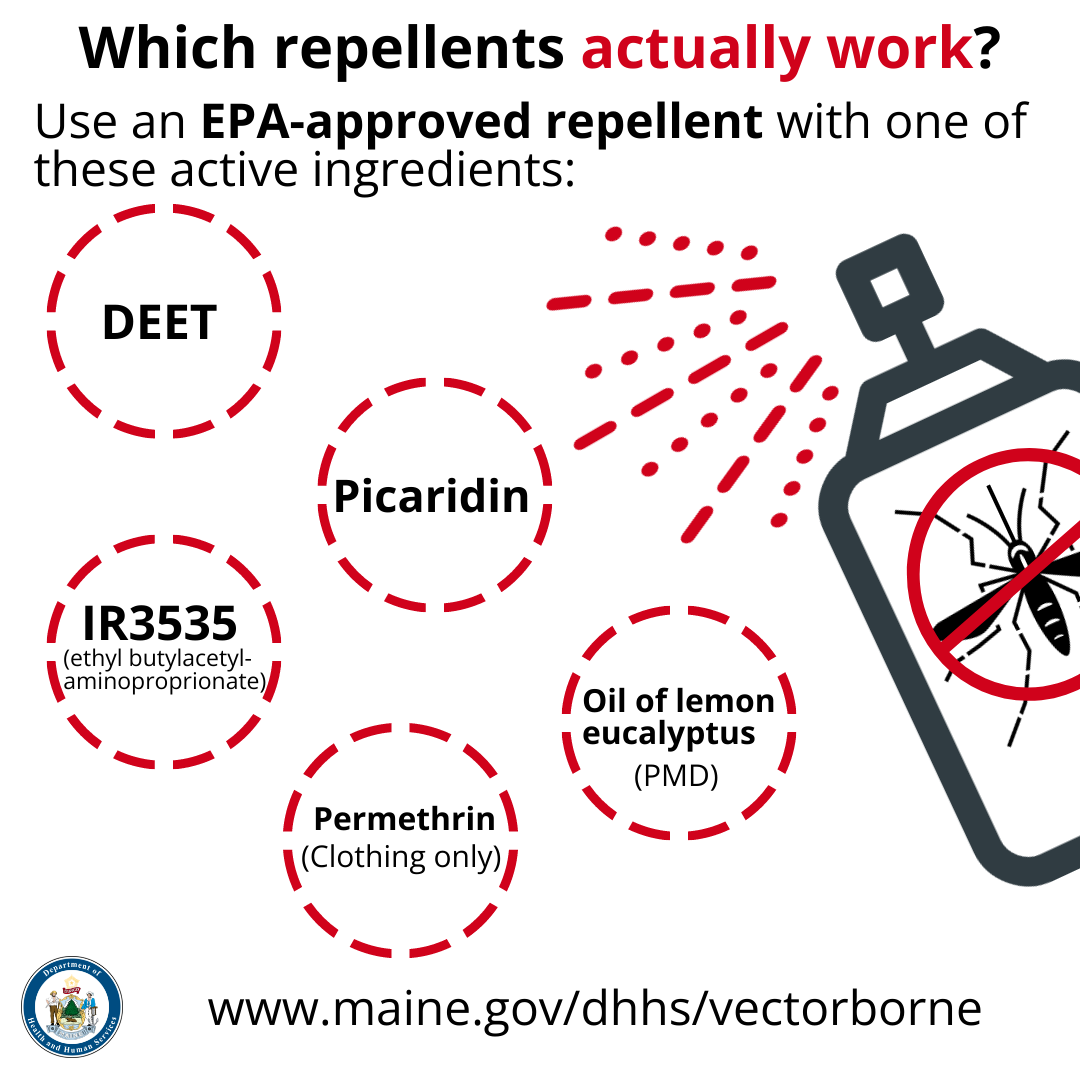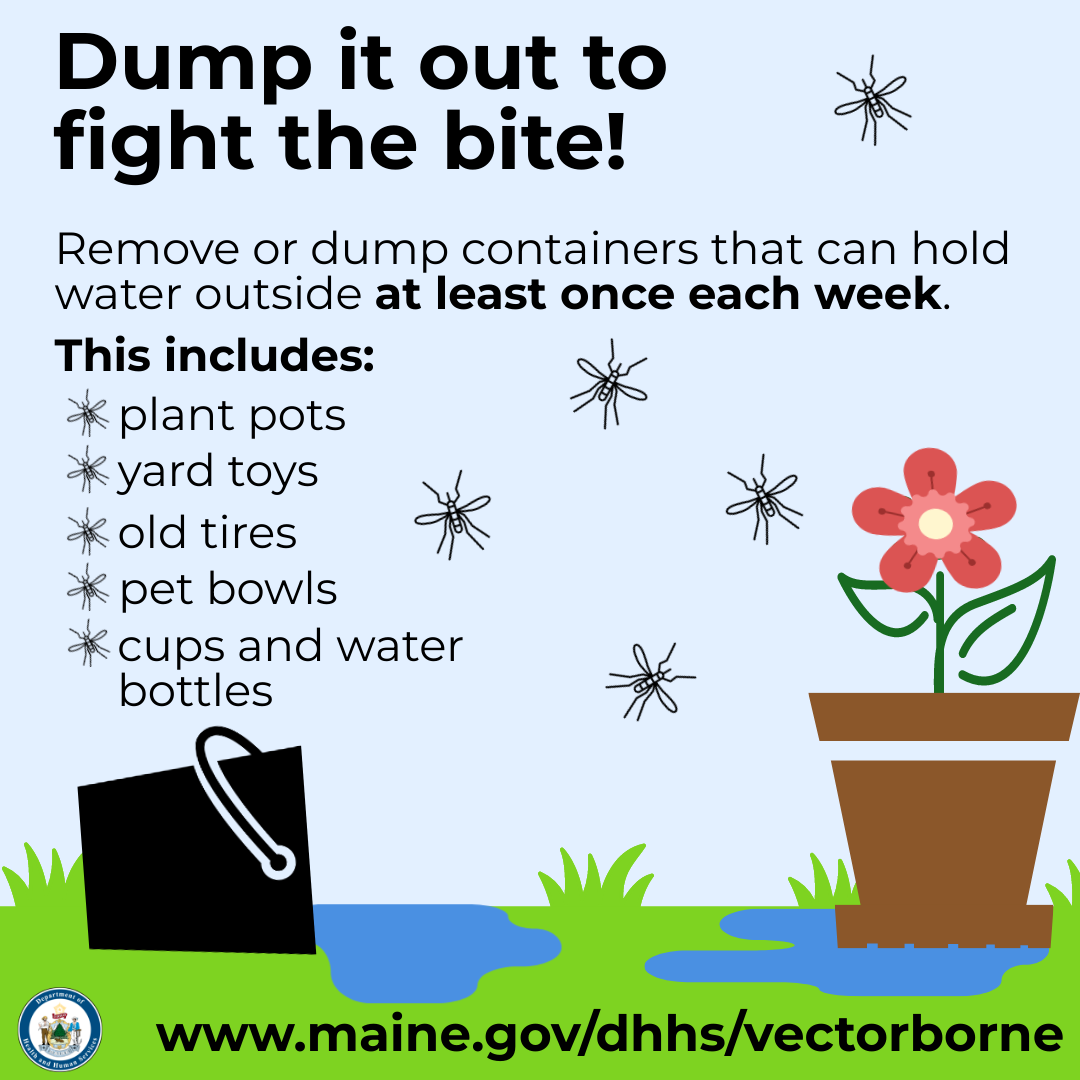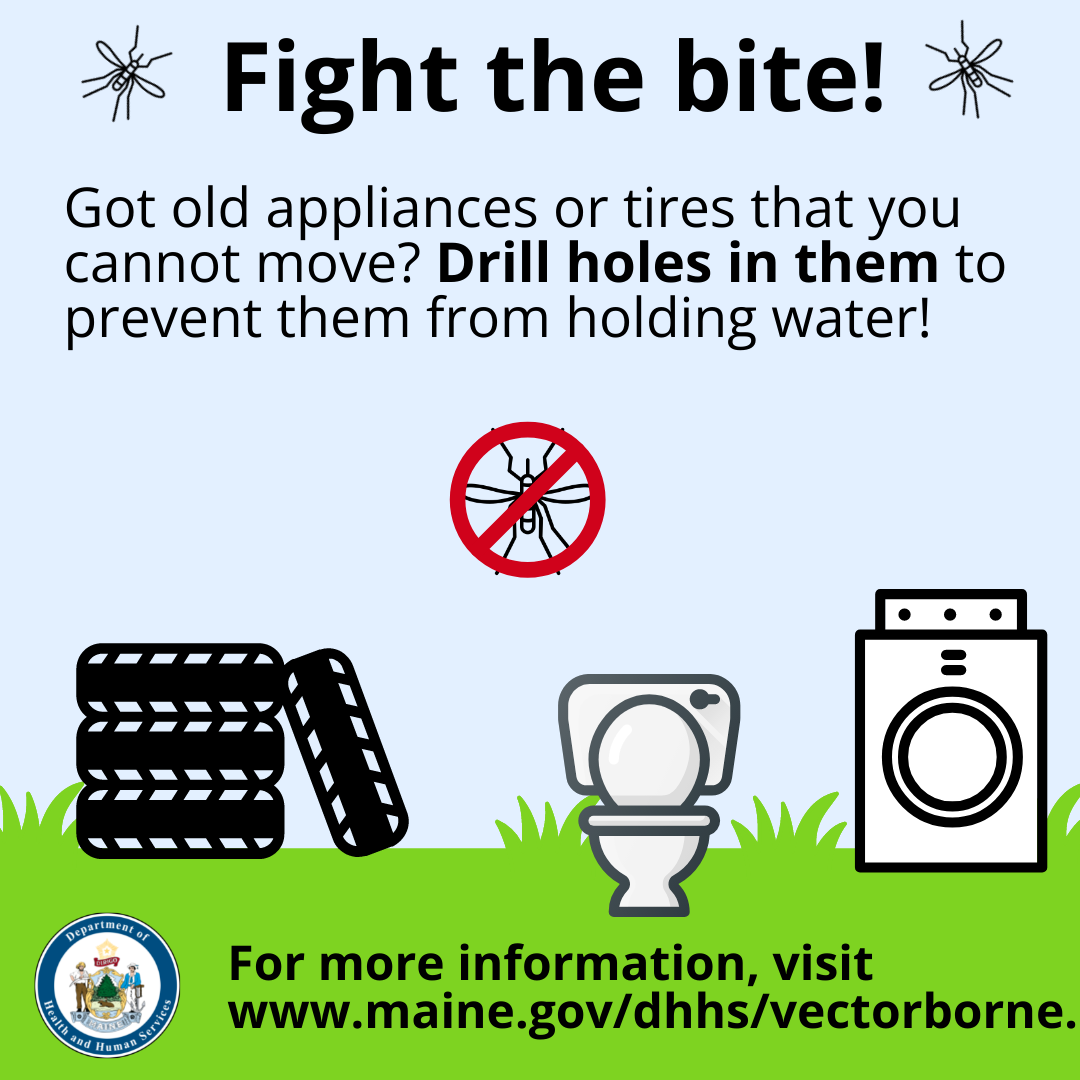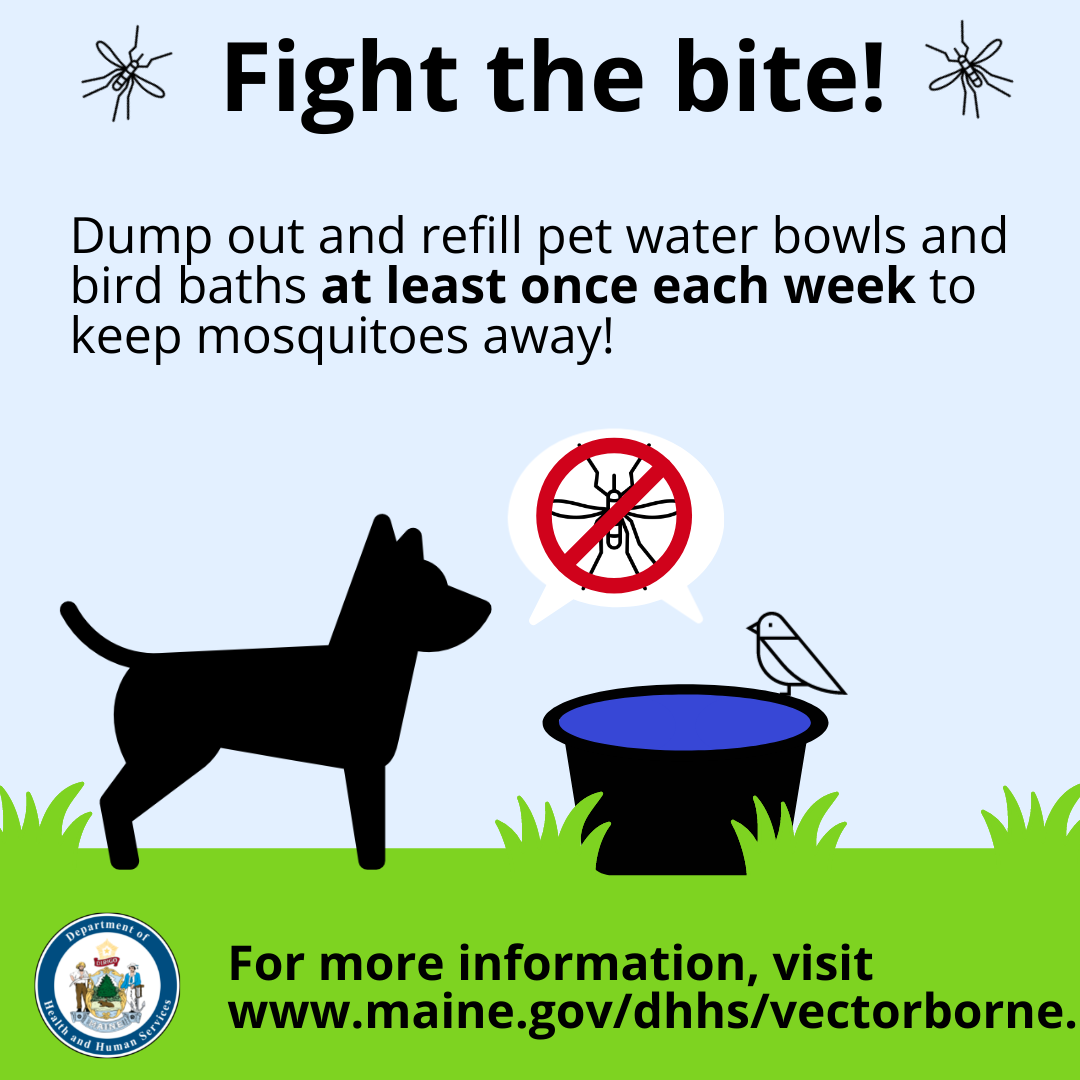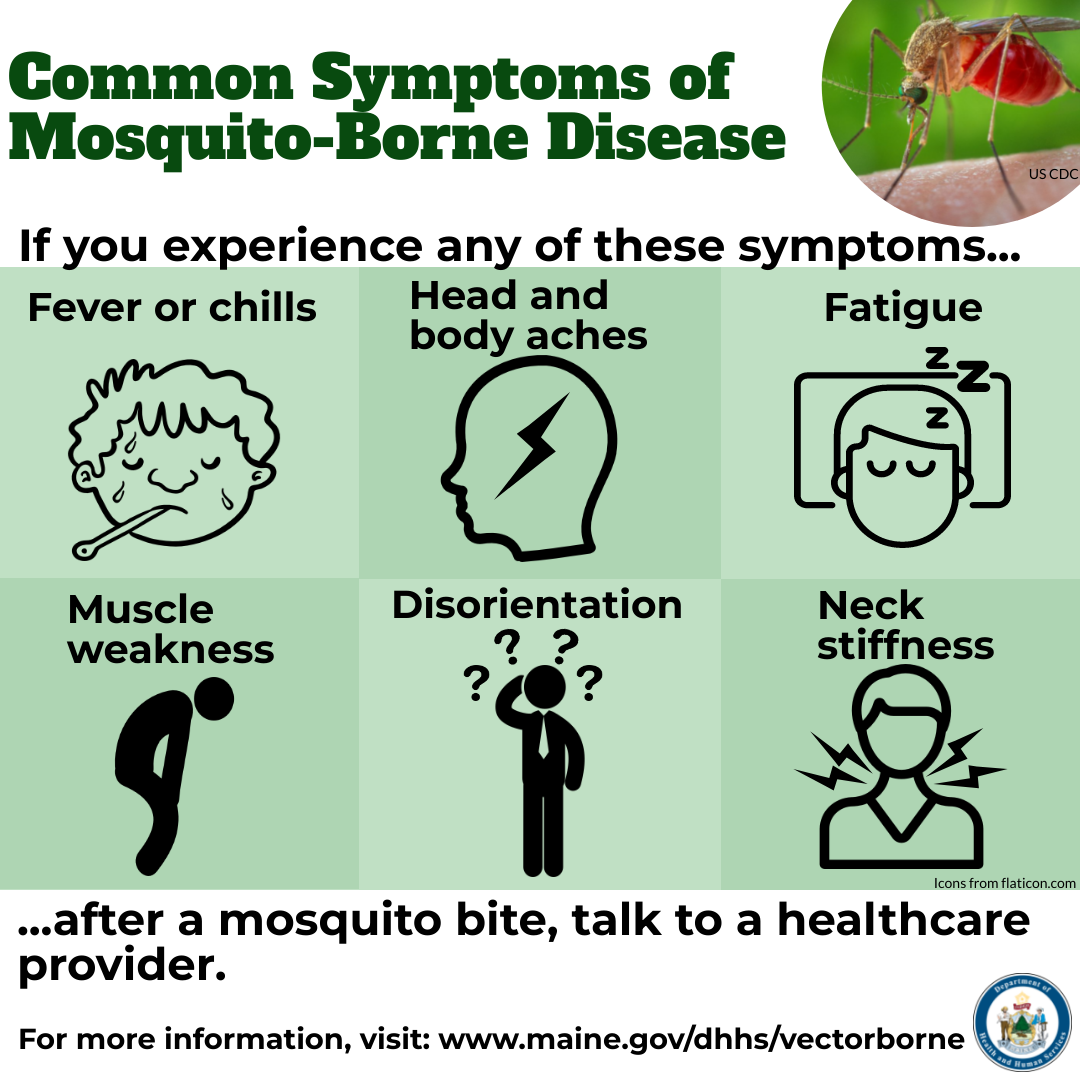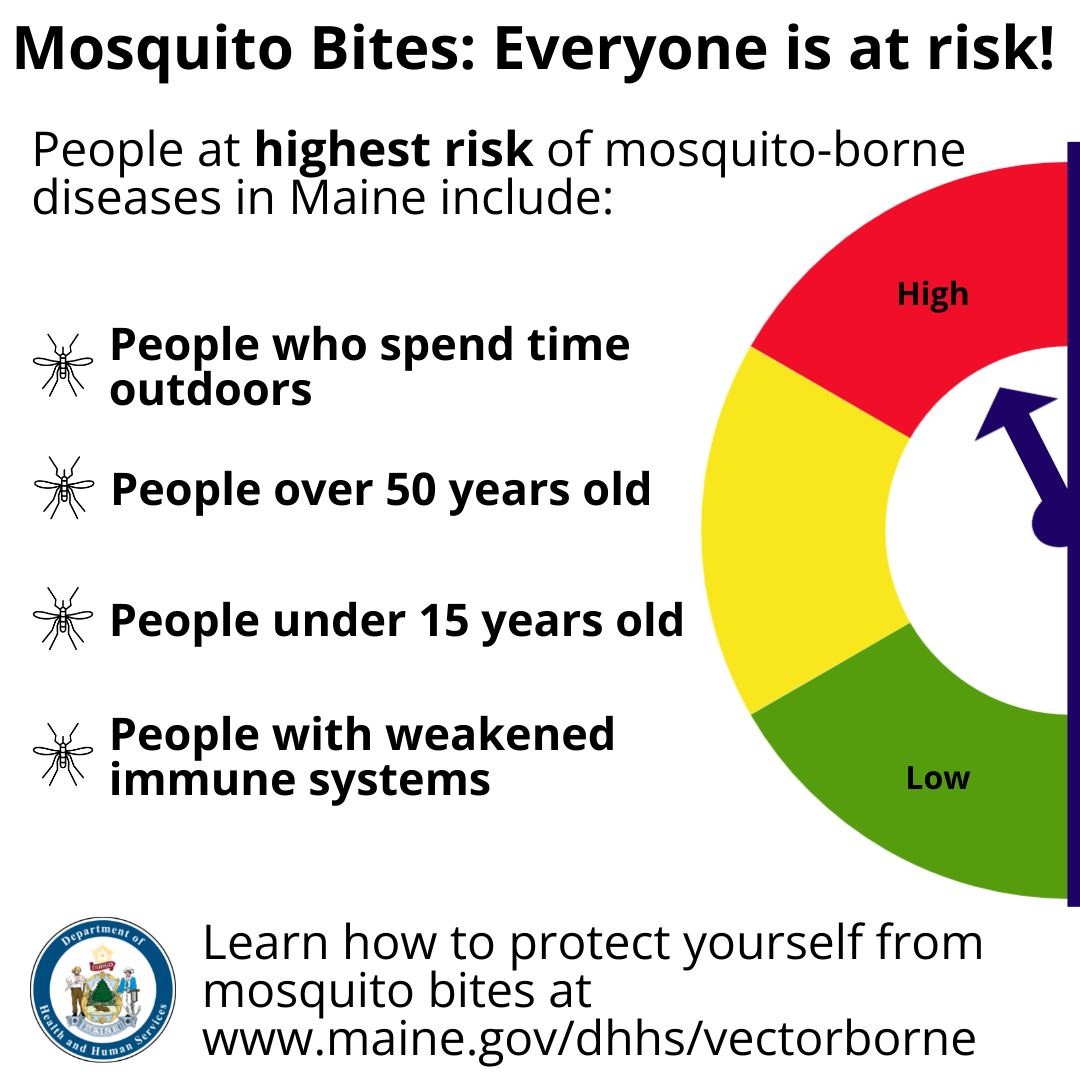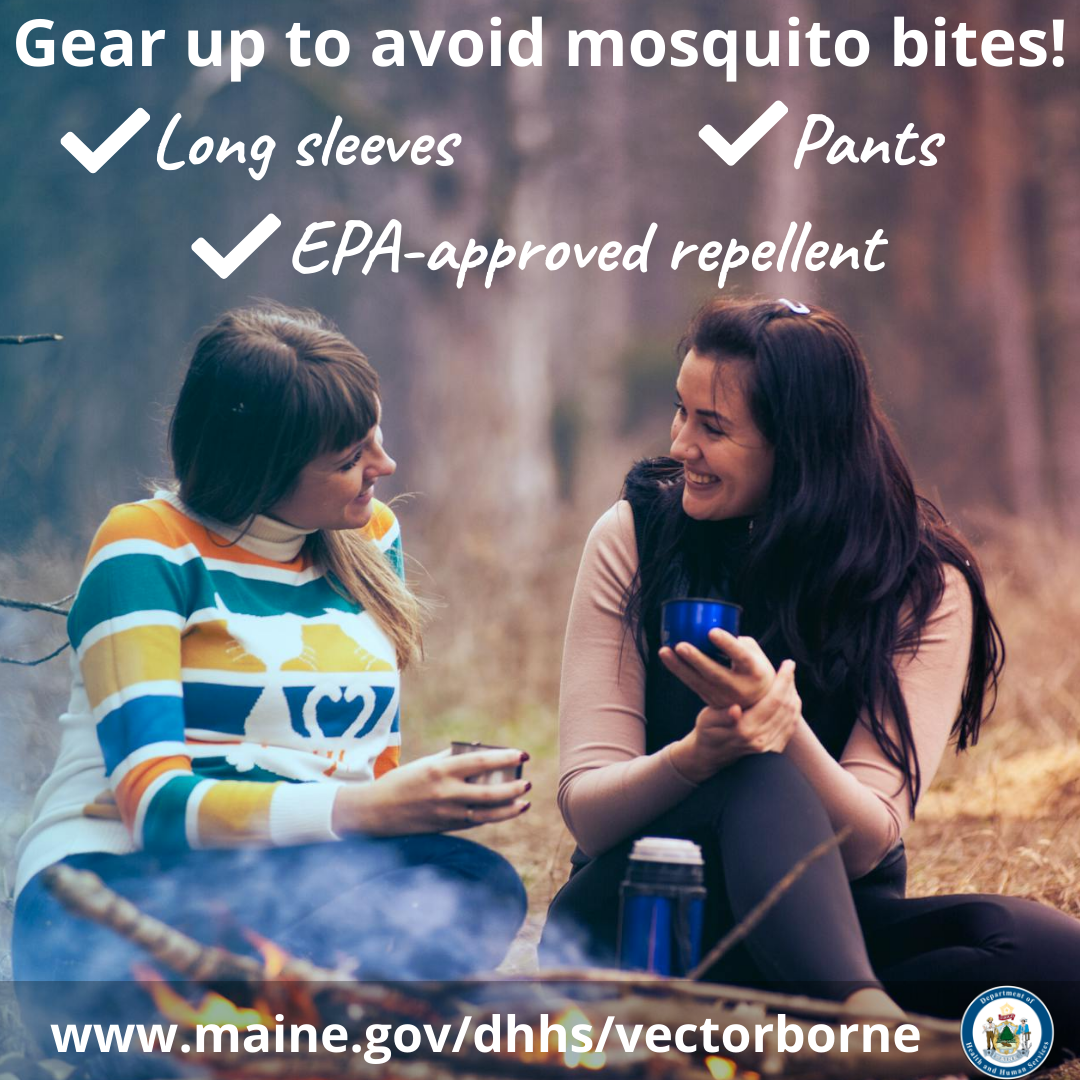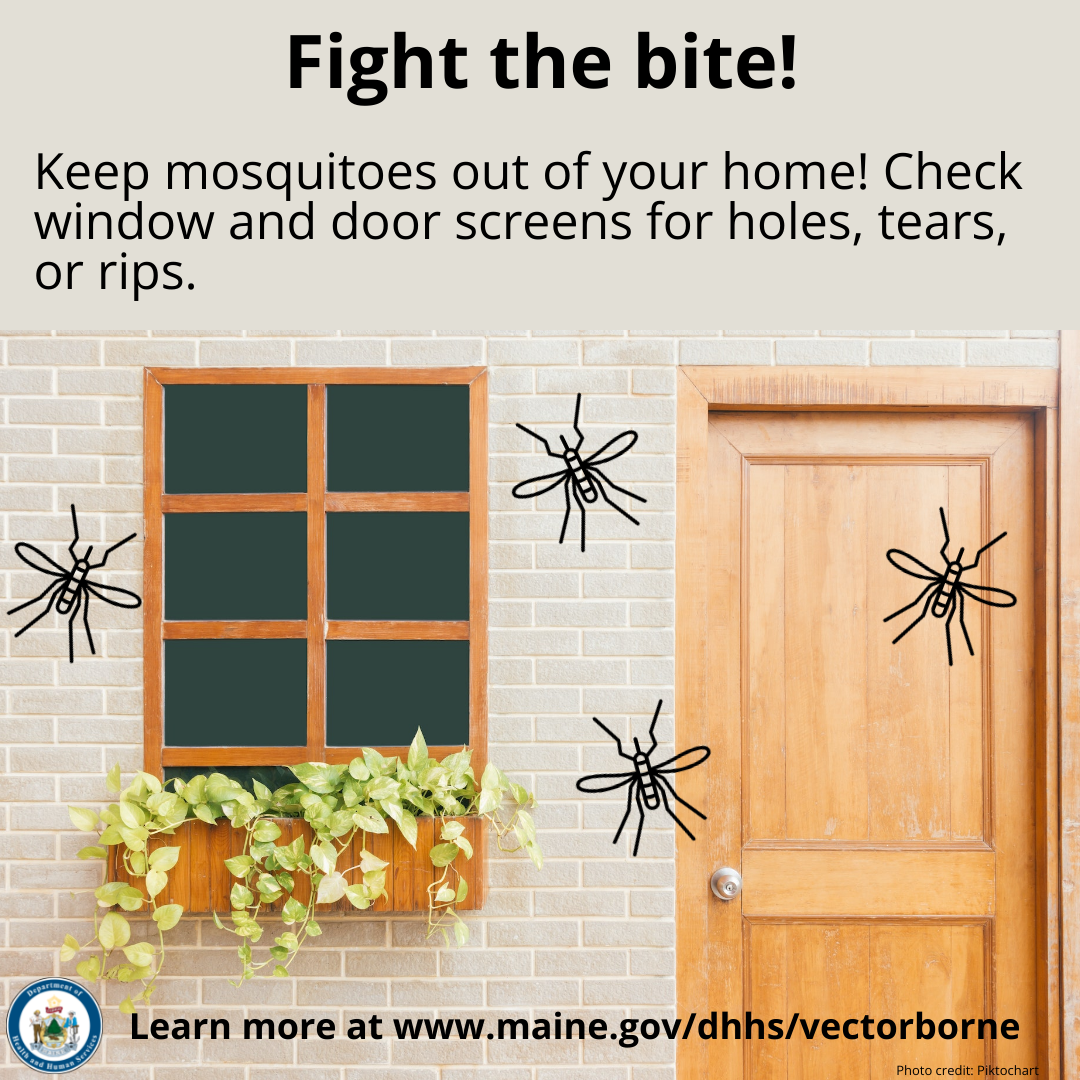DHHS → MeCDC → Disease Surveillance → Epidemiology → Vector-borne Diseases → West Nile Virus
West Nile Virus 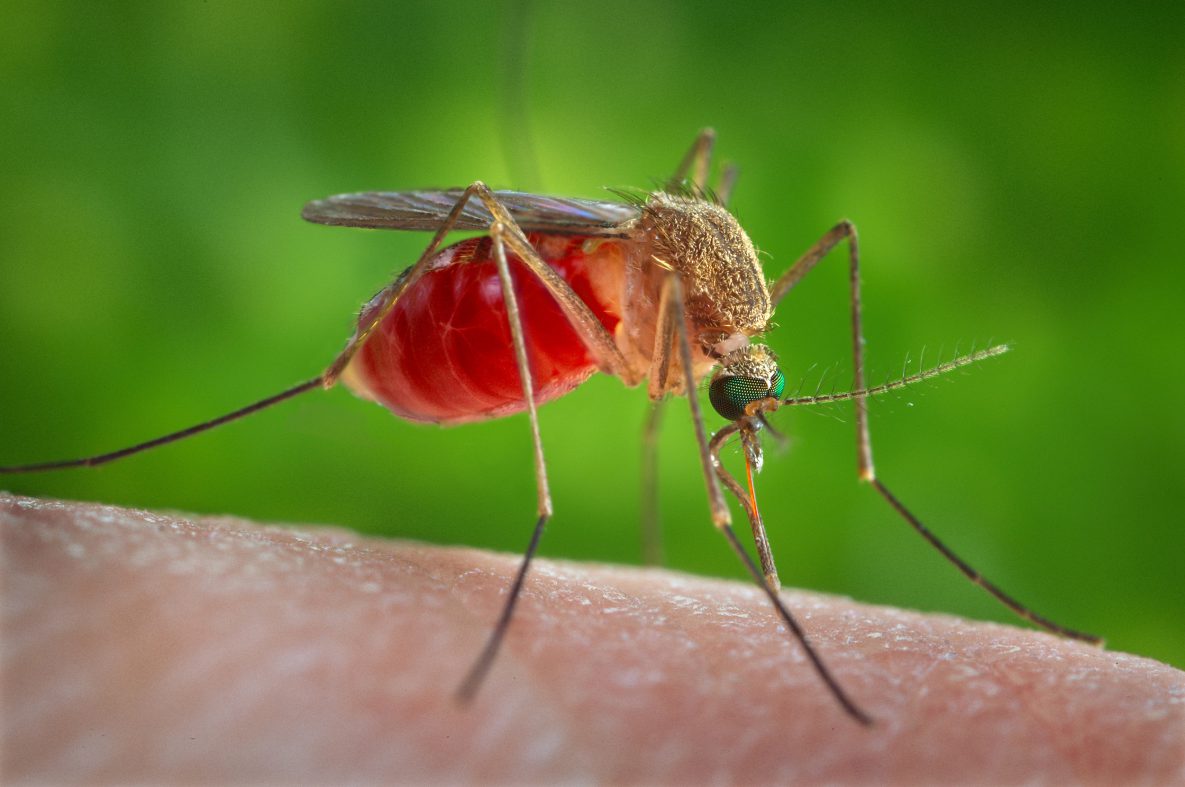
On this page:
- About West Nile Virus
- Symptoms
- Prevention
- Resources for Educators
- Reports and Publications
- Social Media Toolkit
- West Nile Resources
Photo credit: US CDC
About West Nile Virus
West Nile Virus (WNV) is a mosquito-borne viral illness. It occurs throughout the United States and can cause disease in humans, birds, and other mammals.
West Nile Virus spreads to a person through the bite of an infected mosquito. West Nile cases occur sporadically in Maine, usually during the summer and fall when mosquitoes in Maine are active.
West Nile Virus and Birds
West Nile Virus can infect certain kinds of birds and cause them to die. If you find three or more dead birds all at the same time in the same place, report these die offs to Maine Department of Inland Fisheries and Wildlife.
Symptoms
Most people infected with West Nile Virus do not develop any symptoms. However, signs and symptoms may develop. This usually occurs 3 to 15 days after being bitten by an infected mosquito, and include:

Fever and chills

Weakness

Headache

Body and muscle pain
More severe signs and symptoms may rarely develop. While severe illness can occur at any age, people over 60 years of age or people with certain medical conditions are at greater risk. Serious signs and symptoms include:

Inflammation of the brain

Confusion

Neck stiffness

Coma
Prevention
Prevent Mosquito Bites
The best way to prevent mosquito-borne diseases is to prevent mosquito bites in the first place. Take these simple steps every day to prevent mosquito bites:
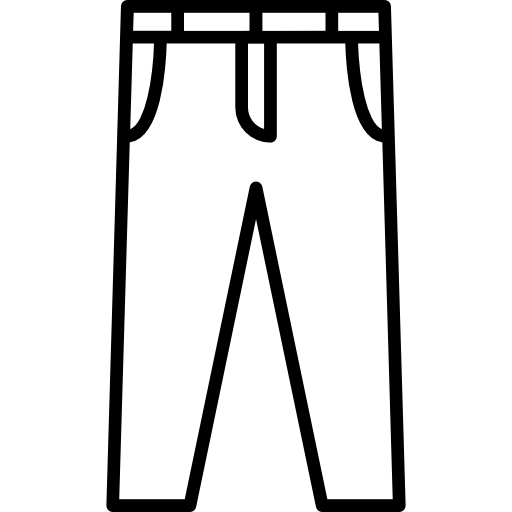
Wear long-sleeved clothing and pants.

Use an EPA-approved bug spray.

Avoid outdoor activities from dusk to dawn, when mosquitoes are most active.
Protect Your Yard From Mosquitoes
You can make your yard a mosquito-safe zone:
- Empty sources of standing water around your home, including in man-made containers.
- Discard man-made containers around your yard that can hold water. If you cannot remove them, consider drilling holes in them to keep them from holding water.
- Put plant pots, yard toys, and other containers that hold water away or store-upside down to keep them from filling with water.
- Change the water at least once every week in containers that have to hold water, like birdbaths and pet water bowls. This makes sure that mosquito larvae (baby mosquitoes) cannot grow into adults.
- Check window and door screens for holes that mosquitoes can fly through and fix them.
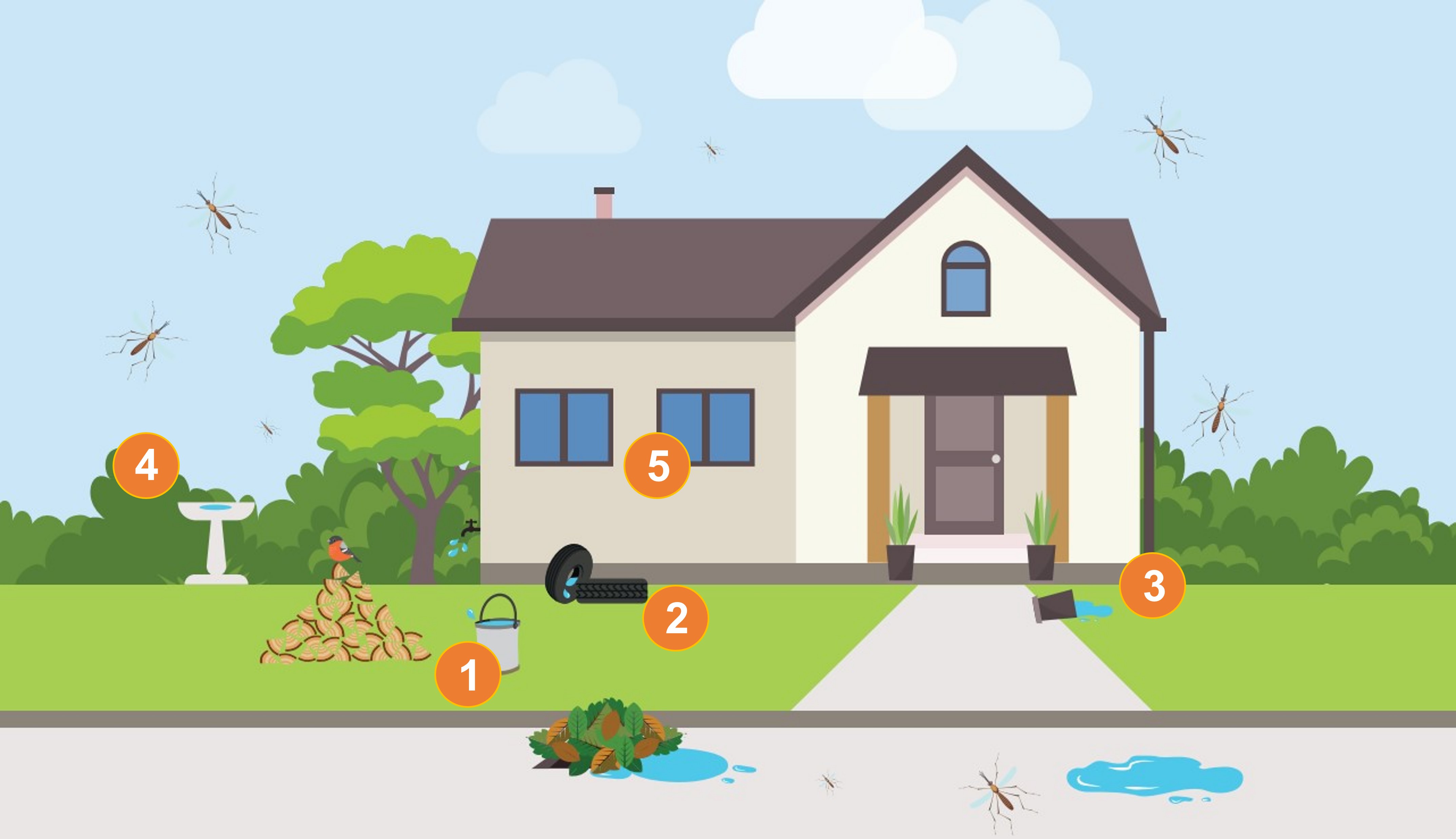
Resources for Educators
Maine CDC developed vectorborne school curricula for 3rd-8th grade classrooms. The curriculum is aligned with Maine Learning Results. School nurses, teachers, and other youth leaders are encouraged to use this resource in their classrooms.
Reports and Publications
- West Nile Surveillance Reports (PDF): 2009 | 2010 | 2011 | 2012 | 2013 | 2014 | 2015 | 2018 | 2020 | 2021 | 2023
- Weekly Arboviral Surveillance Reports
Social Media Toolkit
West Nile Resources
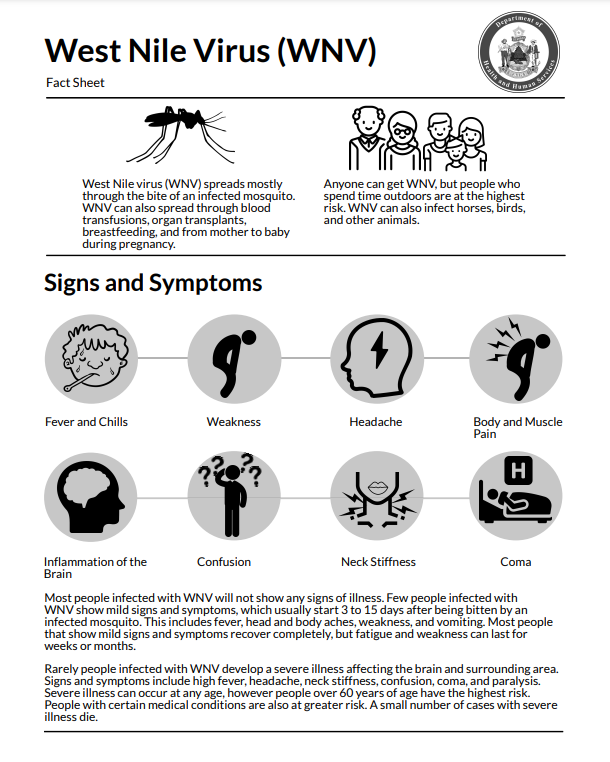
West Nile Factsheet (PDF) | عربي | Français (PDF) | Kreyòl Ayisyen (PDF) | Kiswahili (PDF) | Lingala (PDF) | Português (PDF) | Soomaali (PDF) | Español (PDF) | Tiếng Việt (PDF)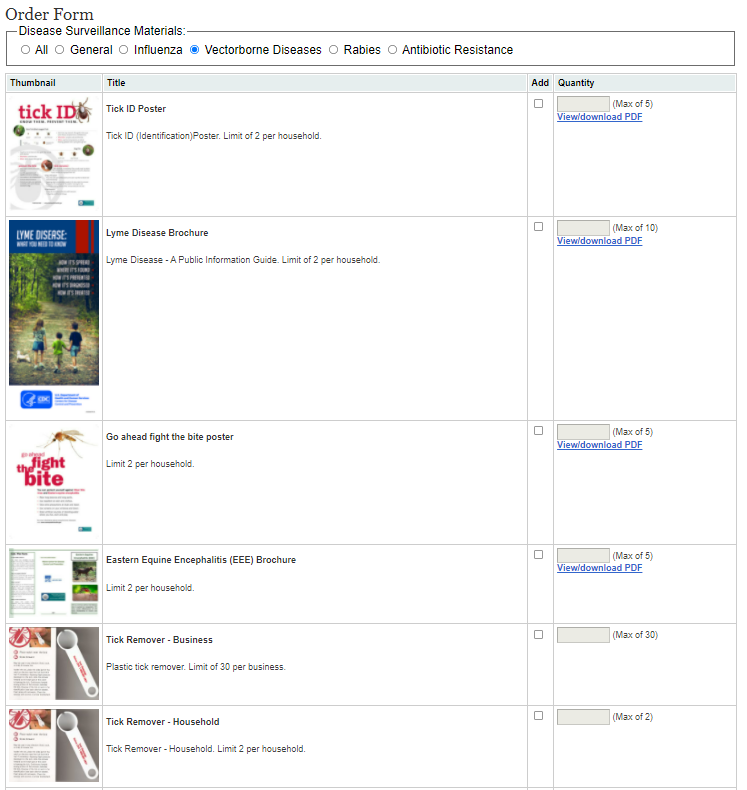
Vectorborne Disease Orderable Materials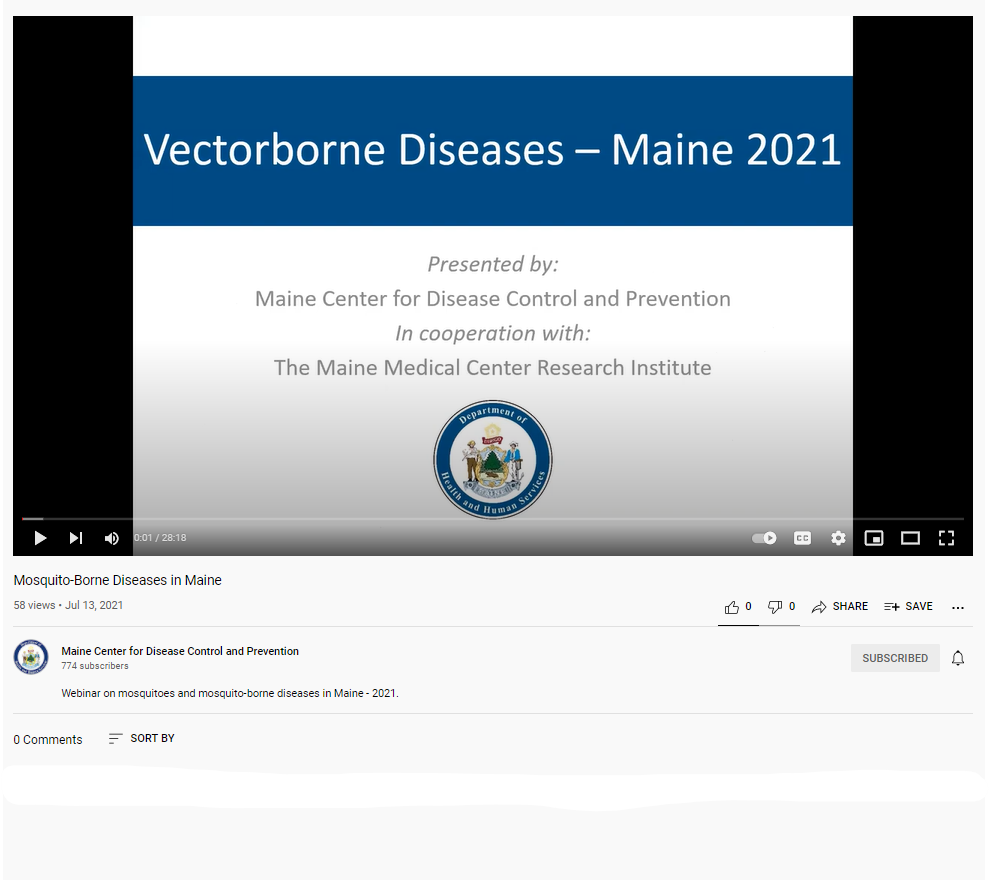
Mosquito-Borne Diseases in Maine 2024 Webinar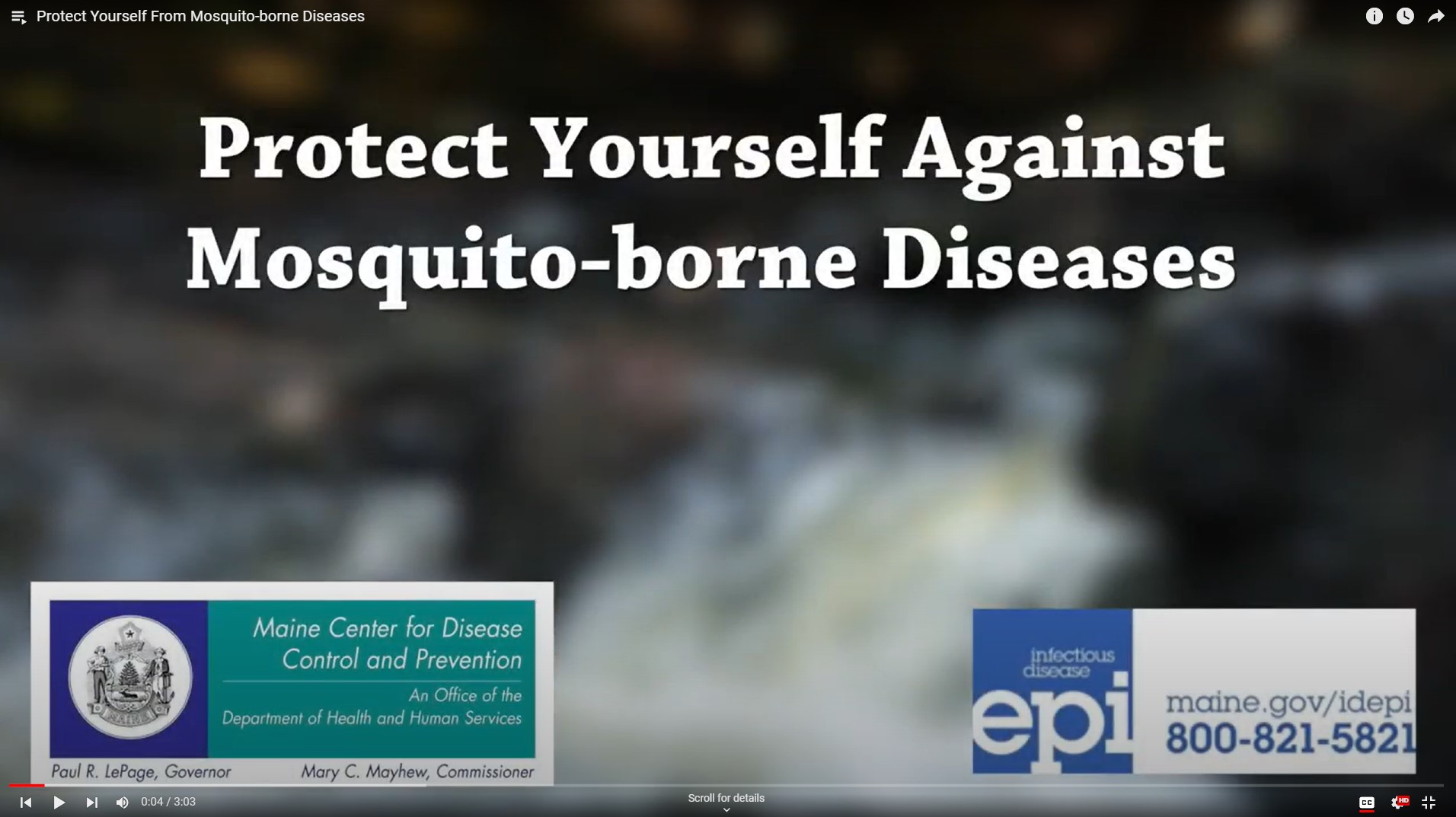
Protect Yourself Against Mosquito-borne Diseases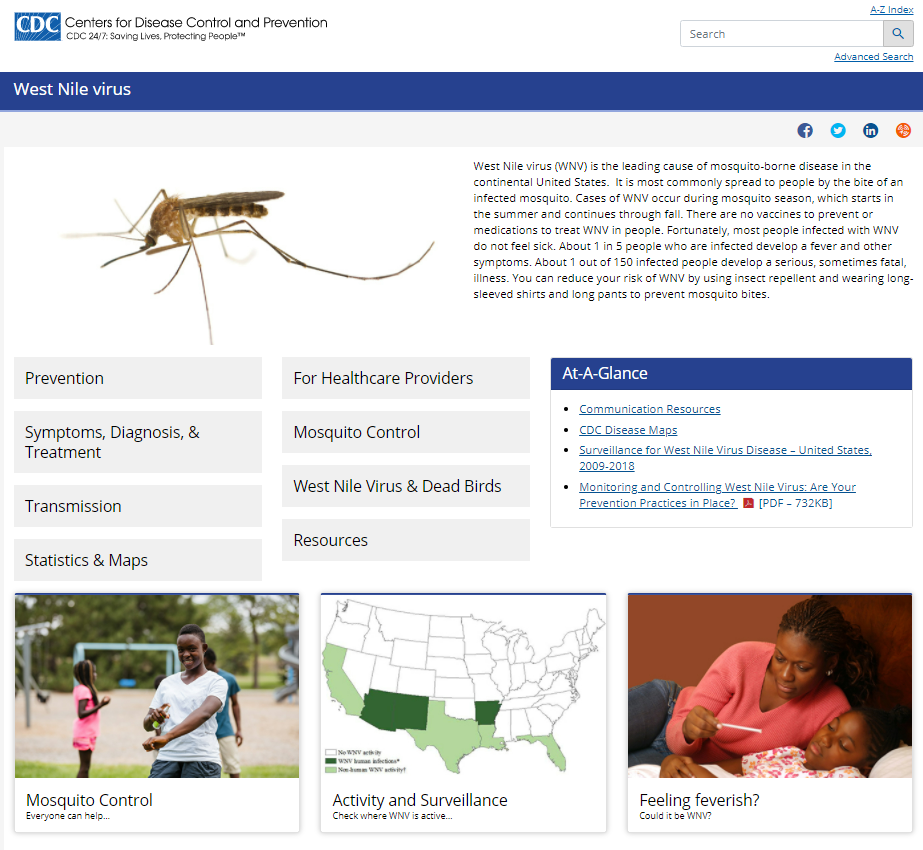
US CDC West Nile Information
Icons from www.flaticon.com
